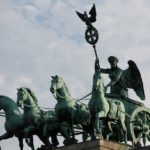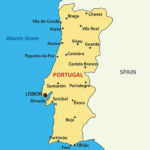At the turn of the 18th and 19th century it was fashionable among the intellectuals (lay or spiritual) to belong to a masonic lodge; in the 19th and 20th centuries they all saw it fit to advocate, support, and take part in the socialist movement (from Marx to Lenin to Trotsky to Mussolini to Stalin to Hitler to Piłsudski they all were socialists of one brand or another); today’s fashion that reigns supreme among the elites is globalism (another word for the well-known communist and socialist internationalism).
Central and East European countries from cradle have been parroting the fashion that is currently taking hold of the western minds. The aping was always belated and imperfect (which spared the latter huge social upheavals), but it has been the modus vivendi of the central and eastern European elites who have always, and I mean always, felt inferiority complex facing their western counterparts. Nothing has changed in this respect nowadays. The Eastern European elites desperately want to “belong”, they want to be “recognized”, “respectful” in the eyes of their Western role models, so they will go to all and any lengths to prove they are worthy of their cleverer western colleagues’ attention and praise.
What is today’s fashion? Migrants. If you want to prove that you “belong”, you need to desire the presence of migrants in your own country, cost it what it may, against the will of your own people. After all, who are they, those common people? Sheeple. Yes, sheeple, because elites of whatever brand, white or red, right or left, religious or irreligious have always had a patronizing and condescending attitude towards their compatriots, bigots, as they call them at best, rednecks at worst. And sheeple need to be told what is right and what is wrong. It is high moral ground to want to turn your country into a mix of races, creeds and languages; it is morally reprehensible not to want it. Understood? Continue reading

















